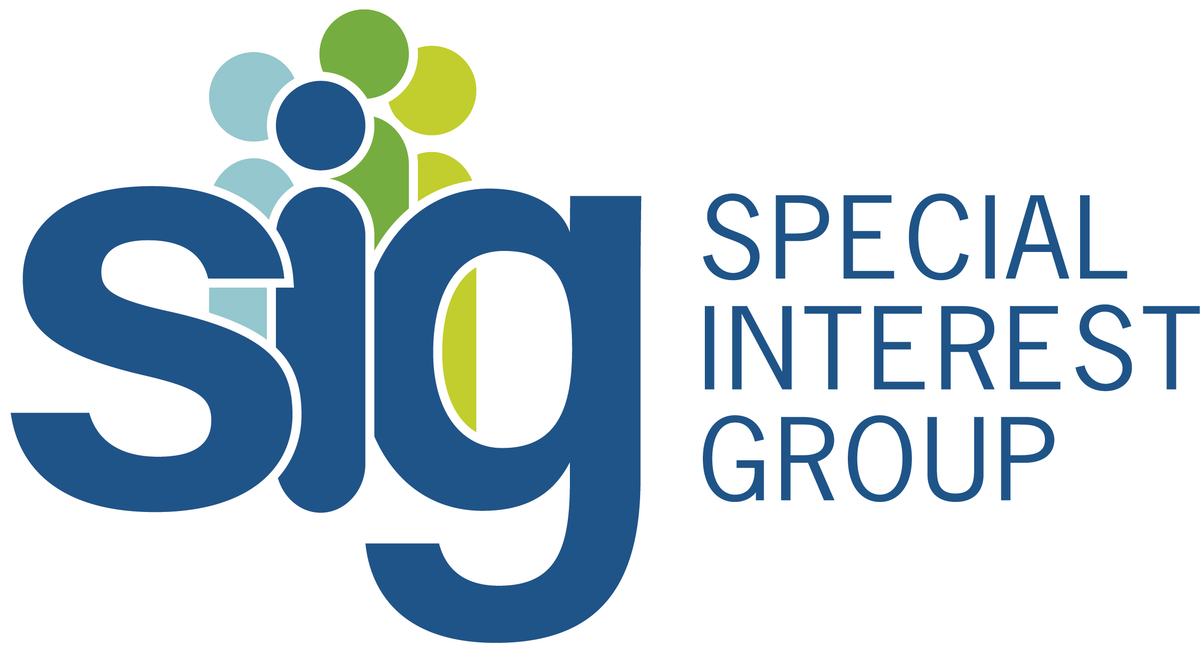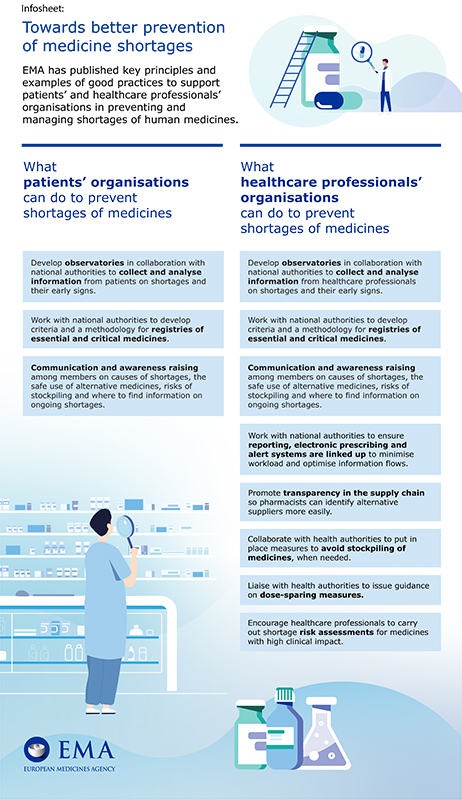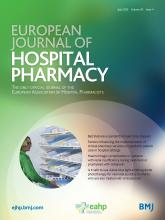EU Monitor - 28 July 2022 - Additional experts needed for one of our SIGs – apply by the 31st of August!
The EAHP EU Monitor is a regular round up of news relevant to hospital pharmacy in Europe.
SIG Working Towards Eliminating Avoidable Harm opens a new call for the expression of interest

EAHP’s Special Interest Group (SIG) Working Towards Eliminating Avoidable Harm (financially supported by Baxter) is looking for additional experts. To complement the activities of the SIG individuals with a clinical background, nurses, physicians, risk managers, engineers and IT specialists (IT design issues) are encouraged to respond to this call for the expression of interest by the end of August.
EAHP’s SIG Working Towards Eliminating Avoidable Harm is tasked with looking at how hospital pharmacists could better identify, understand and manage the many factors that impact the delivery of care. Particular focus will be put on eliminating avoidable harm within the supply, preparation and safe administration of all types of medicines in Europe. This will be achieved by looking at current critical incidences, desk research and proposing approaches on how to minimise the occurrence of risks, critical incidents, and therefore also harm. The discussions of the SIG will go beyond the hospital pharmacy, meaning that the whole process along the supply chain of medicinal products will be taken into account as well as the legal framework.
Professionals interested in joining EAHP’s SIG Working Towards Eliminating Avoidable Harm should send their CV and motivation letter by the 31st of August to Jennie.DeGreef[at]eahp[dot]eu.
Learn more about the SIG and the call for the expression of interest HERE
Student Science Award: sign up for the webinar!
 EAHP is proud to announce the opening of the next round of the EAHP-EPSA Student Science Award. This prestigious prize recognises and honours the best scientific research authored by a pharmacy student or recent graduate. Since 2011 the EAHP-EPSA Student Science Award is offered in collaboration with the European Pharmaceutical Students' Association (EPSA) to a student who has conducted research in the field of hospital and/or clinical pharmacy.
EAHP is proud to announce the opening of the next round of the EAHP-EPSA Student Science Award. This prestigious prize recognises and honours the best scientific research authored by a pharmacy student or recent graduate. Since 2011 the EAHP-EPSA Student Science Award is offered in collaboration with the European Pharmaceutical Students' Association (EPSA) to a student who has conducted research in the field of hospital and/or clinical pharmacy.
To enter the competition, students and recent graduates are encouraged to attend the webinar “How to write an abstract”, hosted by EAHP’s Director of Professional Development Claudia Plesan and EAHP Vice President Darija Kuruc Poje. The webinar will take place on the 8th of September 2022 from 5.30 to 6.30 pm CEST.
After the webinar, participating students and recent graduates can obtain detailed feedback on their work prior to submitting their final abstract by 15th November 2022. The abstracts are reviewed in accordance with the criteria of innovation, originality, and contribution to the development of hospital pharmacy. The author of the winning abstract will receive a complimentary registration to the 27th Congress of EAHP, including the coverage of travel and accommodation expenses (up to 500 Euros), as well as official recognition at the EAHP Congress closing ceremony on the 24th of March 2023.
More information about the EAHP-EPSA Student Science Award HERE
Register for the webinar HERE
Contribute to the work of EAHP’s SIGs by responding to the open surveys

Both EAHP's SIG focused on the Use of Prefilled Syringes in Intensive Care Units and Operating Theatres (financially supported by BD) and EAHP’s SIG on Automated Medication Management (financially supported by Omnicell) are currentlygathering feedback with the help of surveys to inform their work. The survey linked to automation will remain open until the end of July, while comments on prefilled syringes can be submitted until the end of August.
The activity of EAHP's SIG on Automated Medication Management focuses on the benefits of automation, particularly around the medication preparation/ compounding/ dispensing process, and how technology best meets the needs of different hospital pharmacy workflows. Hospital pharmacists are encouraged to share their views and opinions on the current and future use of automated medication management solutions. The short survey (10 to 15 minutes) will remain open until the 31st of July. Participation is voluntary and the SIG is looking for one response per hospital pharmacy. Six different language versions (English, French, Italian, Polish, Slovak and Spanish) are available.
EAHP's SIG focused on the Use of Prefilled Syringes in Intensive Care Units and Operating Theatres has prepared two surveys targeting on one hand professional associations and on the other hand health professionals and managers. Participation is completely voluntary. It should take approximately 10 to 15 minutes to complete the survey. Feedback can be shared until the 31st of August 2022. The survey for professional associations is available in English. The survey for individual health professionals and managers can be completed in eight different languages (English, French, German, Hungarian, Italian, Serbian, Spanish and Turkish).
Access the survey on automated medication management HERE
Access the survey for individuals on prefilled syringes HERE
Access the survey on prefilled syringes targeting professional associations HERE
EMA releases new guidance to support the prevention and management of shortages
 The European Medicines Agency (EMA) has published a guidance for patients’ and healthcare professionals’ organisations with key principles and examples of good practices to support them in preventing and managing shortages of human medicines. Some of the key recommendations included in the document apply to both target groups, while others focus more on the contributions that patients’ organisations and healthcare professionals’ organisations could make.
The European Medicines Agency (EMA) has published a guidance for patients’ and healthcare professionals’ organisations with key principles and examples of good practices to support them in preventing and managing shortages of human medicines. Some of the key recommendations included in the document apply to both target groups, while others focus more on the contributions that patients’ organisations and healthcare professionals’ organisations could make.
The member organisations of EMA’s Patients’ and Consumers’ Working Party (PCWP) and Healthcare Professionals’ Working Party (HCPWP) participated in the creation of the guidance that links to existing practices and initiatives in individual EU Member States. Measures that healthcare professional organisations can take to prevent medicine shortages include:
- Encouraging healthcare professionals to carry out shortage risk assessments for medicines with high clinical impact.
- Working with national authorities to ensure reporting, electronic prescribing and alert systems are linked up to minimise workload and optimise information flows.
- Promoting transparency in the supply chain so pharmacists can identify alternative suppliers more easily.
- Collaborating with health authorities to put in place measures to avoid stockpiling of medicines, when needed.
- Liaising with health authorities to issue guidance on dose-sparing measures.
Communication, awareness raising and the collection of medicine shortage signals are among the measures that patients organisations and healthcare professionals organisations can promote jointly by for example:
- Developing observatories in collaboration with national authorities to collect and analyse information from healthcare professionals on shortages and their early signs;
- Working with national authorities to develop criteria and a methodology for registries of essential and critical medicines; and,
- Conducting communication and awareness raising among members on causes of shortages, the safe use of alternative medicines, risks of stockpiling and where to find information on ongoing shortages.
Find out more about the guidance HERE
EJHP: Real-world effectiveness and durability of dual antiretroviral therapy in HIV-infected patients
The online first edition of the European Journal of Hospital Pharmacy (EJHP) recently published the results of a study that investigated, in real clinical practice, dual antiretroviral therapy (DAT) effectiveness, durability, and risk factors for treatment discontinuation. This was a prospective cohort study that included HIV-infected patients treated with DAT (2015–2020). DAT was considered effective when patients achieved or maintained virological suppression and was assessed at 24 and 48 weeks. DAT durability was evaluated using the Kaplan-Meier method. Adherence and treatment cost were compared with patients’ previous antiretroviral regimens. The results showed that DAT effectiveness and durability were higher in patients who were virologically suppressed at baseline. DAT is a possible alternative for virologically non-suppressed patients who cannot be treated with a triple-drug regimen.
effectiveness, durability, and risk factors for treatment discontinuation. This was a prospective cohort study that included HIV-infected patients treated with DAT (2015–2020). DAT was considered effective when patients achieved or maintained virological suppression and was assessed at 24 and 48 weeks. DAT durability was evaluated using the Kaplan-Meier method. Adherence and treatment cost were compared with patients’ previous antiretroviral regimens. The results showed that DAT effectiveness and durability were higher in patients who were virologically suppressed at baseline. DAT is a possible alternative for virologically non-suppressed patients who cannot be treated with a triple-drug regimen.
Read the article HERE

Have you met EAHP's Statement Implementation Ambassadors?
To promote the implementation of the European Statements of Hospital Pharmacy at the national level EAHP has teamed up with motivated and enthusiastic hospital pharmacists willing to help their countries and others move towards Statement Implementation, the so-called "Implementation Ambassadors". They act as the primary link between EAHP, their national associations and the implementation activities done within their countries. In case you are curious about the Implementation Ambassador working in your country you can find out more about him/her via the Statement website.




